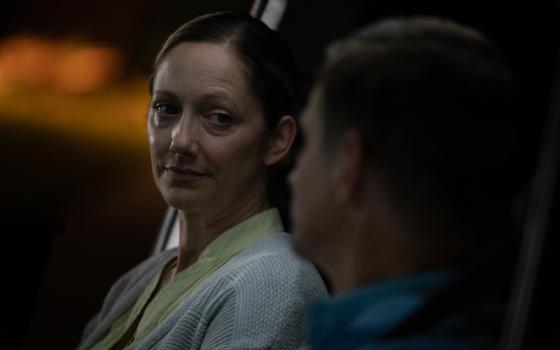On this day, a century ago, Edward Harrigan died.
If I could slip back in time to the 1870s, my favorite decade in American theatrical history, and see just one play, it would be one of the Mulligan Guard shows with Harrigan and Hart.
"The form we know as musical comedy was born on Broadway in a series of shows starring Edward (Ned) Harrigan and Tony Hart. Produced between 1878 and 1884, with book and lyrics by Harrigan and music by his father-in-law David Braham, these musical comedies featured characters and situations taken from the everyday life of New York's lower classes -- minus any sign of burlesque's showgirls. With these distinctly American works, Harrigan, Hart and Braham laid a path that Broadway musicals would follow profitably for more than a century to come.
"Harrigan had made his name as a comedian in the variety halls of San Francisco. Hart was a stage-struck reform school escapee with a rare gift for stage comedy. They met the mid-1870s, and soon developed a routine that poked fun at New York's infamous neighborhood militias. These local "guard" troops were little more than uniformed drinking clubs sponsored by local politicians. Weekend parades designed to impress the public were often so beer-soaked that the participants looked ridiculous. To spoof this, Harrigan and Hart donned ill-fitting uniforms and staggered through inept military drills while singing a merry march."
-- "History of the Musical Stage: 1879-1890: The First Musical Comedies", by John Kenrick. (The child in the picture with Hart, left, and Harrigan, right, is carrying a target, indispensable for the guards, who competed in shooting matches at their picnics.)
For an excellent account of the great playwright's life and work, see "Harrigan and Hart", in Vaudeville Old & New: An Encyclopedia of Variety Performers in America, Volume 1, by Frank Cullen with Florence Hackman and Donald McNeilly, Routledge, 2006, pages 483 (right-hand column) to 488.
For a touching and insightful analysis of what Ned Harrigan did for Irish-Americans, see 'Twas Only an Irishman's Dream: The Image of Ireland and the Irish in American Popular Song Lyrics, 1800-1920, by William H. A. Williams, University of Illinois Press, 1996, pages 162-171.
To read a couple of scenes from The Mulligan Guard, some remarks by Harrigan on his "method and purpose in the Mulligan series", and some comments by William Dean Howells, see "Musical Comedy: Harrigan's Mulligan Guard", in From Traveling Show to Vaudeville: Theatrical Spectacle in America, 1830-1910, by Robert M. Lewis, The Johns Hopkins University Press, 2003.
Harrigan's influence was far-reaching. For example, Richard Outcault's famous Yellow Kid (from whose name the term "yellow journalism" derived) lived in "Hogan's Alley". The comic strip was named for the location of "Maggie Murphy's Home", a song in Ned Harrigan's Reilly and the Four Hundred.
-- Jolly Fellows: Male Mileus in Nineteenth-Century America, by Richard Storr, The Johns Hopkins University Press, 2009. Search term: yellow. Page 267 (274).
To get an idea of what the songs by Ned Harrigan and his father-in-law David Braham sounded like, listen to samples from "McNally's Row of Flats", by Mick Moloney, 2006. Some of their most famous songs are on the album, including "My Dad's Dinner Pail" and "The Babies On Our Block".
(If you're not familiar with the children's game, Little Sally Water, which Harrigan refers to in "The Babies On Our Block", click here.)
Click here for images of Harrigan and Hart.
Click here for sheet music of 146 of Ned Harrigan's songs and, on page 14, of George M. Cohan's "Harrigan".
Collected Songs: 1873-1882, by David Braham and Edward Harrigan, contains the words and music of hundreds of their songs.
Click here for Edward Harrigan's obituary in the New York Times, June 7, 1911.

